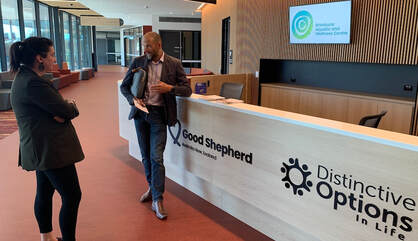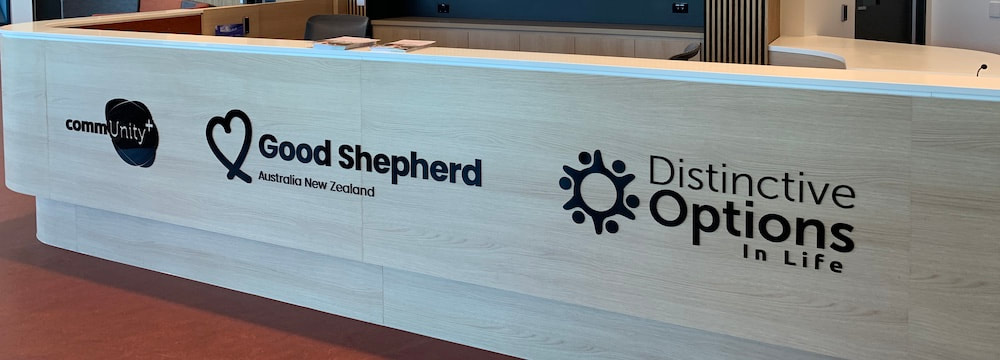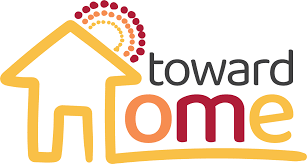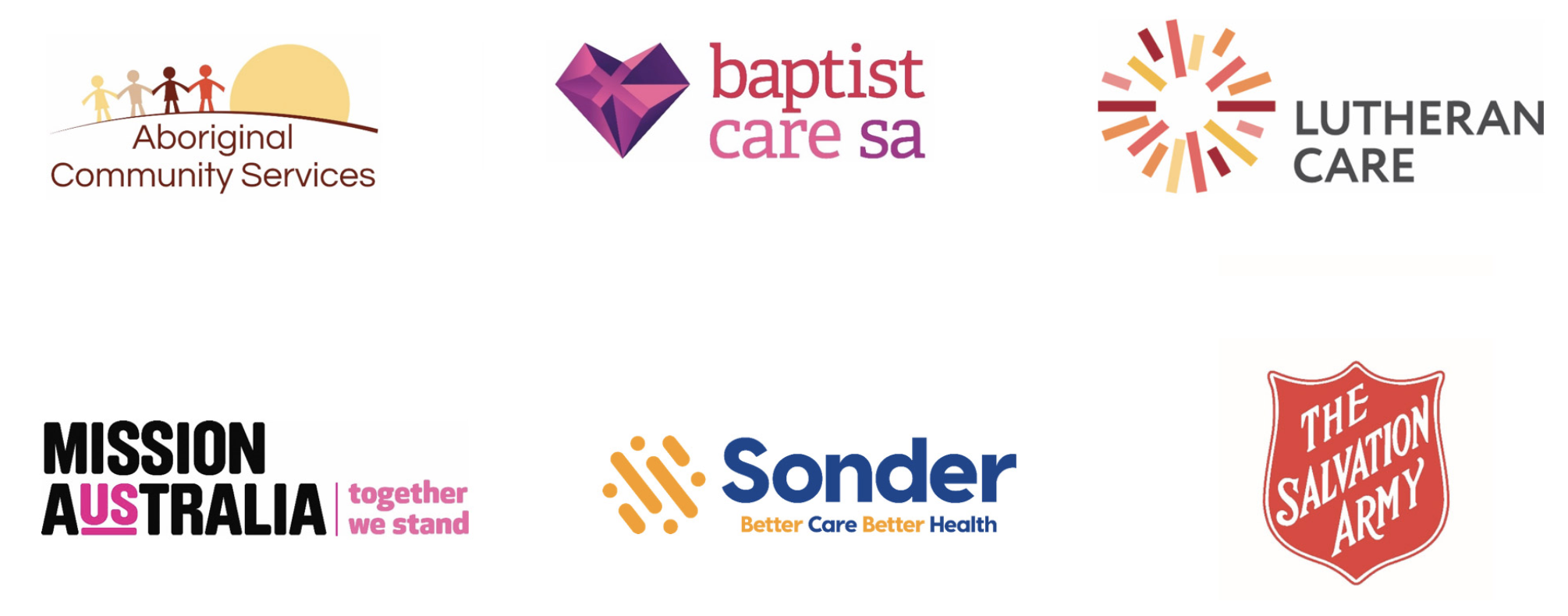|
In February, Dale presented at the Victorian Alcohol and Drug Association (VAADA) conference on how a whole social sector can come together to take leadership of data and develop a collaborative data project to share useful data across multiple stakeholders. Collaborative data projects enable a sector to see the 'whole impact' of the sector and measure outcomes in consistent ways. See the presentation pack below.
 For Latitude Network, 2022 has been a year of growth, new challenges, and the rewards of seeing efforts come to fruition. We’re glad you’ve been with us on the journey, as partners, supporters or simply interested friends. Here are some of the highlights from our year. What are our major learnings from this year?
To the network of people with whom we work - those who are dedicated to improving social systems and social outcomes - we are deeply grateful to be collaborating with you on this important but difficult work. We look forward to connecting with more people in this movement for high performance and outcomes focus in 2023. Read about four important projects we undertook this year - Toward Home Alliance - a new way forward for homelessness servicesToward Home Alliance (THA) is a network of six housing services along with the South Australian Housing Authority, working together across South Australia to address homelessness in a single service system. In 2022, we conducted a detailed review of the Alliance’s operations and governance structure. As a trusted advisor for THA, we’ve worked with them for a number of years, and this next step allowed them to develop a new cross-agency operations manual. This truly is a ‘systems change’ project as it allows a single entity (the Alliance) to manage every part of the homelessness service system. The new operations manual was built to enable more than 100 staff working across five agencies plus multiple service partners to work to a common, integrated service model. This allows all agencies to provide more tailored, appropriate support but also to work across the usual silos of the sector. In 2023, we’ll work with THA on a ‘Continuous Quality Improvement’ process embedded in everyday operations. The aim is to continually update and improve service delivery, guided by the Ops Manual and by the data being collected by all services. Hello Sunday Morning - using data to create deeper understandingHello Sunday Morning (HSM) is a digital platform operating on mobile and desktop, established in 2009 to support people to reduce alcohol consumption and alcohol harm. Their Daybreak app enables and facilitates peer-to-peer support, generating over six million data points that HSM engaged Latitude Network to analyse.
The project helped the team interpret and segment the data and understand the stories it was telling about their clients, how they were using the app, and how to use the data to better support and engage clients. We provided detailed segmentation of the App users, provided insights about who is using the online service, for how long, how intensively, and how long they stay in contact. This allowed HSM to develop strategies to maintain connection with those likely to disengage. In 2023, we will use ‘machine learning’ tools to develop predictive models for the client to create an ongoing learning loop. This will then provide a range of early-warning data for HSM on factors such as likely client disengagement and drop-out rates and impact data. Using innovative new ways to track and measure data is crucial for services such as Hello Sunday Morning, and we’re excited to see how the service will evolve with increasingly rich and detailed data to support their development. You can read more about this project here. In September 2022, the $60M Brimbank Aquatic and Wellness Centre (BAWC) was opened in Melbourne’s inner west.
 SOCIAL ISSUE Prior to 2021, the South Australian homelessness funding, like most homelessness systems around the country, was divided between multiple different service providers who weren't incentivised to work together as one system. The three key limitations of the system were:
CLIENT CHALLENGE The South Australian Housing Authority (SAHA) sought to redesign the homelessness system in order to reduce the number of those at-risk of entering homelessness and the length of time people are in the system. To do this, SAHA divided its jurisdiction into five discrete regions and called on social service providers to develop solutions. In the Adelaide City and South region, Baptist Care SA, Lutheran Care, Mission Australia, The Salvation Army and Sonder came together to form the Toward Home Alliance. The challenge for the Toward Home Alliance was to redesign the homelessness system so that service users received a tailored and individualised response. Resources, accommodation and services needed to be aligned to the outcomes for each of the service user groups
The challenge of service design was compounded by the prevalence of factors that contribute to homelessness such as mental health, physical health, disability, drug and alcohol and life trauma - requiring the intervention to holistically address these issues too. THE ROLE LATITUDE NETWORK PLAYED Latitude Network played a central role in supporting the Toward Home Alliance. The process involved uniting a diverse set of national, state, local and Aboriginal-run service providers toward a common goal of reducing homelessness in a defined geographical region. The key functions of the Latitude engagement included:
THE IMPACT The first impact was that the innovative proposal was accepted by the South Australian Government with the Alliance winning the funding for Adelaide city and South. The funding changed on July 2021, and as with any significant system change, there are always lots of elements to work through. The team has formed well together and built a strong culture of collaboration, but it is still early days to work out how well the elements are working and how best to refine and iterate them. We will keep an eye out on the Toward Home progress and now doubt the challenges of making progress. Reinventing homelessness preventionIn an effort to deliver better outcomes and prevent homelessness in South Australia, the South Australian government has run a competitive tender of homelessness services in the state under a new structure. It sought responses from alliances of social service organisations to work together to address problems in the homelessness system under a single funding contract for an entire region covering all homeless cohorts. The previous system for the Adelaide City and South region was a series of separate funding agreements across 15 different agencies without a common outcomes framework or formal methods to interconnect between services.
Latitude Network supported the Toward Home Alliance to develop a ground up homelessness strategy and program logic based on prevention. With the team, we identified the wide range of cohorts with differing needs across the homelessness system. We zeroed in on those at risk of entering the homelessness system and identified a way to capture data and shift resources towards preventing entry into the crisis accommodation system. The alliance partners developed a professional and mature way of collaborating which provided a strong platform for development of a more ambitious program design. This represents one of the most significant changes to the homelessness system in some years, and provides a pathway for better collaboration, use of data, and continuous improvement with transparent sharing of outcomes between the social sector partners and government. The new outcomes–oriented approach helps to align government and social service organisation interests more directly with client interests. The achievement of client outcomes and prevention of entry into high cost homelessness services provides benefits for all parties. Congratulations to the alliance partners that will now deliver integrated, outcomes-based homelessness services for the Adelaide City and South region -
Also see -
iiSOCIAL ISSUE
Each year, large numbers of people in the mental health system struggle to secure and maintain housing and fall into long-term homelessness. This has significant consequences for their long-term health & wellbeing and puts a high burden on the state’s housing and health systems. CLIENT CHALLENGE Wellways, a national provider of mental health services and leader in sub-acute mental health care, developed the Doorway approach. Doorway supports clients out of a clinical mental health service and into a home by leveraging Australia’s second-largest housing market - private rentals. Doorway does the heavy-lifting to make sure that people engage with and secure a long-term tenancy in the private rental market. This radically increases the supply of housing available to this client group, whilst normalising the process of maintaining housing in the community - not in the public housing system. Wellways has iterated and proven the Doorway model over nearly a decade and an academic review demonstrates its efficacy. However, the challenge for Wellways was that despite Doorway having demonstrated value and impact, there were not any established channels or processes for Wellways to proactively approach Government about continuing this program beyond its pilot. THE ROLE LATITUDE NETWORK PLAYED Latitude Network worked closely with Wellways to strengthen the proposition as an outcomes-based program and transform Doorway into a convincing proactive funding approach to Government. We undertook a deep-dive into the Doorway segmentation data to see for whom it worked best and under what circumstances. We then advised Wellways on how the program could be dialled-up in these areas to create a more compelling investment case for funders. We used a multi-year, data-driven analysis of client outcomes linked through to the program logic and developed a discounted cash flow financial model that reflects the 10-year cost-savings to Government in Net Present Value terms. THE TRANSFORMATION / IMPACT The process of reframing a proven program as an outcomes-oriented program has helped enhance Wellways’ business capacity and confidence to deliver on its promises to clients. It can now target clear and specific outcomes to be delivered with confidence. The Doorway transformation has also created a template for the future, enabling Wellways to apply this methodology to other successful programs. Most importantly, perhaps, the process has reinforced Wellways’ position as a service provider who wants to continuously do better despite traditional block funding mechanisms. Through Doorway, the organisation is now ready for the future world of outcomes-based funding. |
Filter by:
All
Archives
April 2024
|
|
We acknowledge all First Peoples of this land and celebrate their enduring connections to Country, knowledge and stories. We pay our respects to Elders and Ancestors who guide the Aboriginal and Torres Strait Islander community. We also acknowledge the wisdom, dignity and lived experience of the people who benefit from social services.
|
Ready to harness the power of data for your organisation?
|
Data Empowered Social Impact
|









 RSS Feed
RSS Feed
